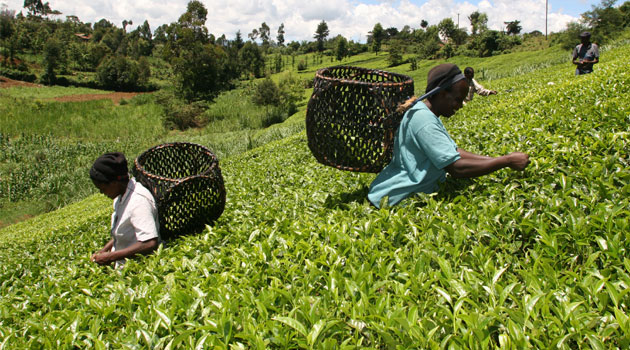NAIROBI, Kenya, Sep 18 – Tea farmers in the country will this year receive an average bonus payment of Sh31.65 for a kilogram of green leaf they took to the factory, less than Sh37.51 paid out last year.
The Kenya Tea Development Agency (KTDA) Managing Director Lerionka Tiampati attributed the drop in the second payment (bonus) to a two percent decrease in net auction price of a kilo tea to Sh272.08 from Sh278.08 in 2012.
Tiampati said the price drop was largely contributed by a stronger Kenya Shilling in 2012/13 financial year compared to the same period in the previous year.
However the initial payment to farmers, which paid to farmers every month, increased to an average price of Sh14 per kilo this of green leaf compared to Sh12.50 last year.
In total, KTDA will pay Sh51.3 billion in 2013 from Sh45.3 billion in 2012, for the initial and the second payment.
“We have continued to experience several challenges in the industry. You now see impact of the fluctuations in the foreign exchange rates. There has also been an up and down movement of tea prices,” Tiampati said on Wednesday while announcing KTDA performance.
Total income increased from Sh61.4 billion in 2011/12 financial year to Sh69.2 billion in 2012/13.
Crop production increased by 24percent to1.1billion kilograms (kg), the highest ever, from 906 million Kg, while made tea increased from 211million Kg to 258million Kg recorded in the previous year.
High production was due to increased acreage and favorable weather conditions during the period.
However, Tiampati expressed fears of drop in crop production by the end of this year by 10 percent due especially due to the current hailstorms being experienced in some key tea areas in Rift Valley.
“As usual you expect prices to go up when the demand low and we are likely this to happen as we go forward,” Tiampati noted.
The agency plans to deal with tea hawking which Tiampati said remains a future threat to the industry.
“The most affected areas include Nyamira, Kisii, Kericho and Limuru. This affects our business in a big way. You can’t build a factory and there is no leaf,” he said.



































